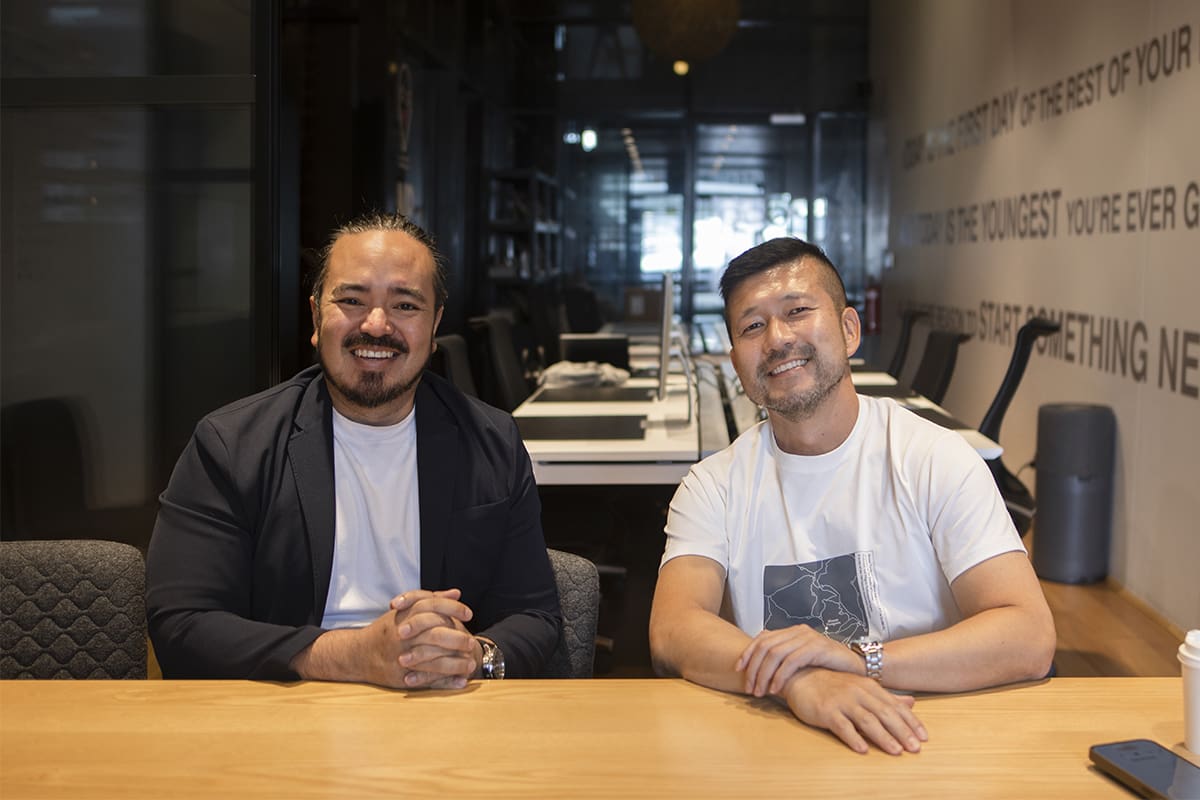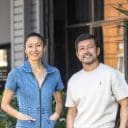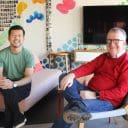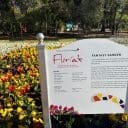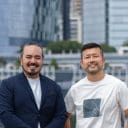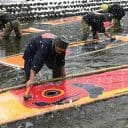In Conversation Vol.24
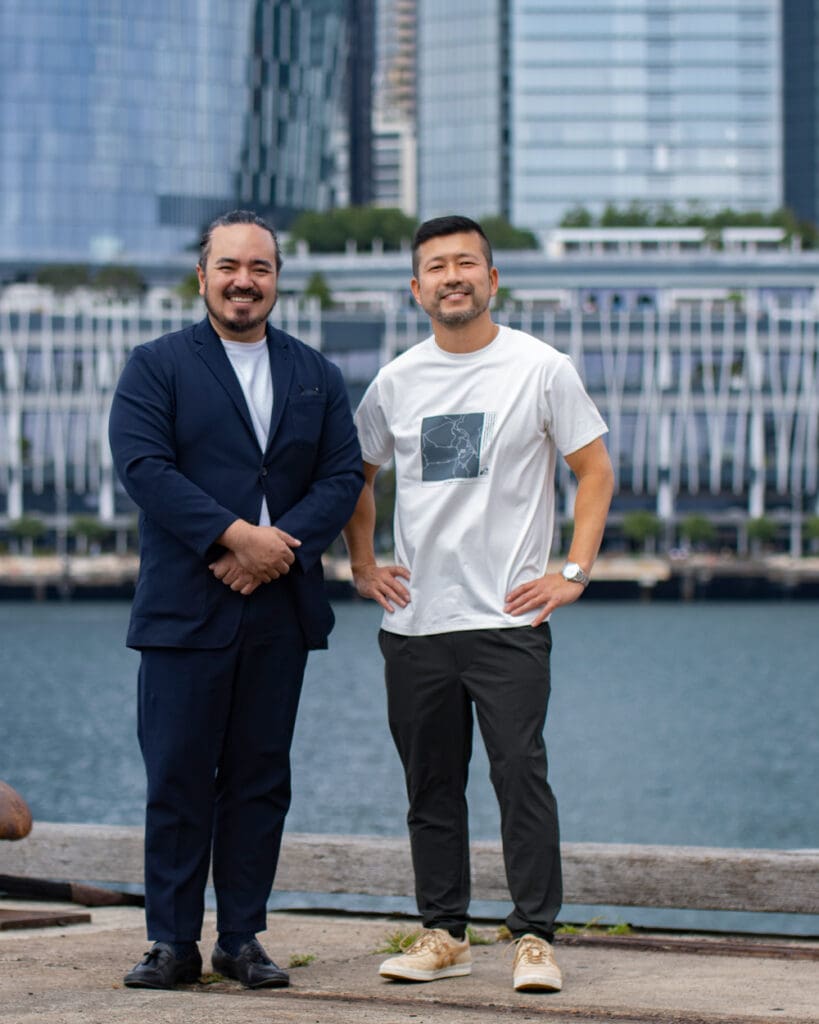
In this ongoing series, Yoshinori Sakuno, the founder of cross-cultural marketing company doq®, who has been active in numerous business scenes and also serves as the chairperson of Nichigo Press, engages in a dialogue on the theme of Japan-Australia relations and business. This time, we are honoured to have Adam Liaw, a star in the Australian culinary world, known for his contributions to cookbooks, appearances on TV shows, and roles as UNICEF Australia’s National Ambassador for Nutrition and a ‘Goodwill Ambassador of Japanese Cuisine’ appointed by the Japanese government.
(Photography: Satoko Clarke, Translated from Japanese by Joy Hansen)
PROFILE
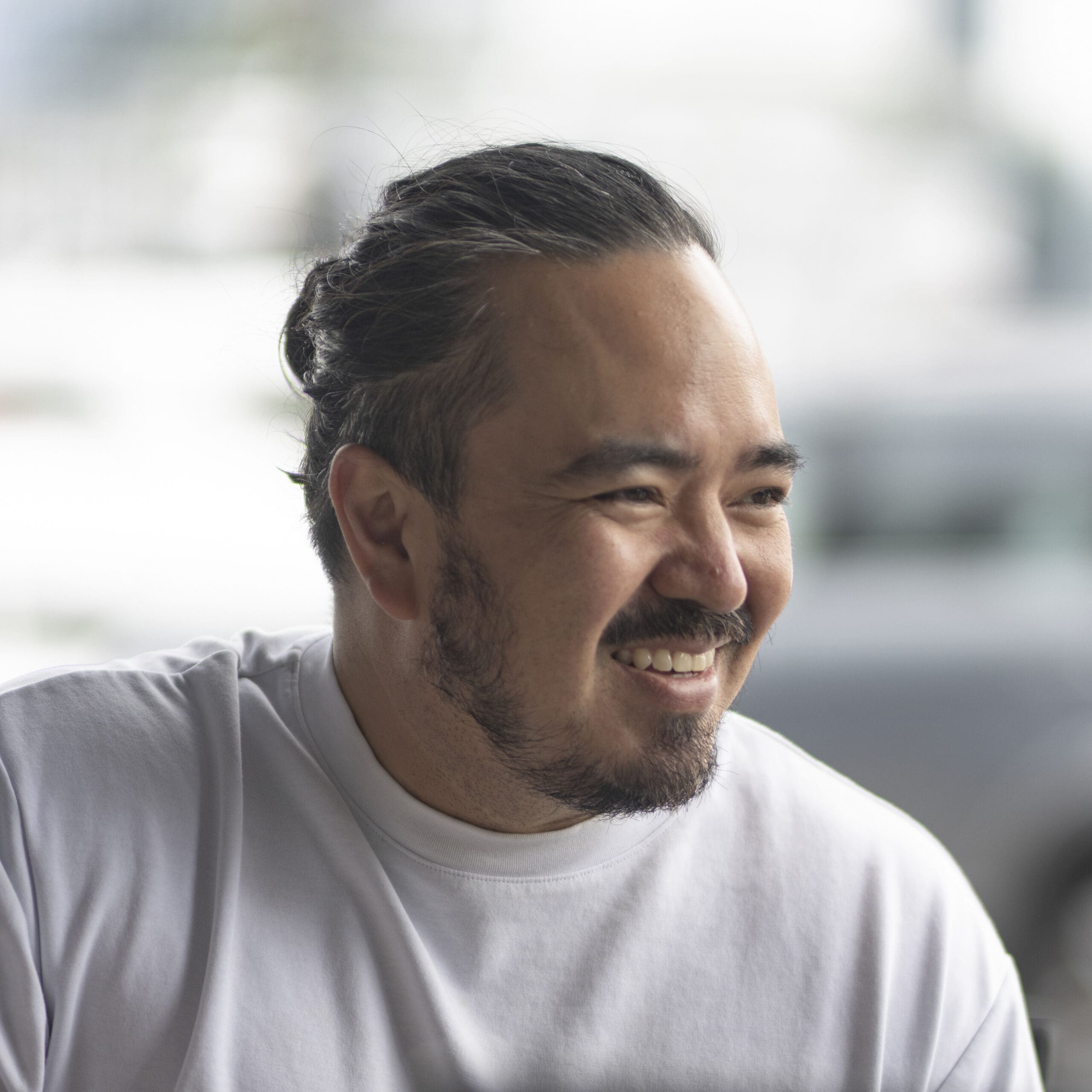

Adam Liaw
After working at a law firm, Adam joined Walt Disney Japan in 2004. He won the second season of ‘MasterChef Australia’ in 2010 and has since published numerous books, including The Zen Kitchen (2016), introducing easy-to-make recipes for traditional Japanese cuisine at home. Adam started presenting the cooking travel show ‘Destination Flavour’ on SBS in 2012, and he holds significant influence on social media.
PROFILE
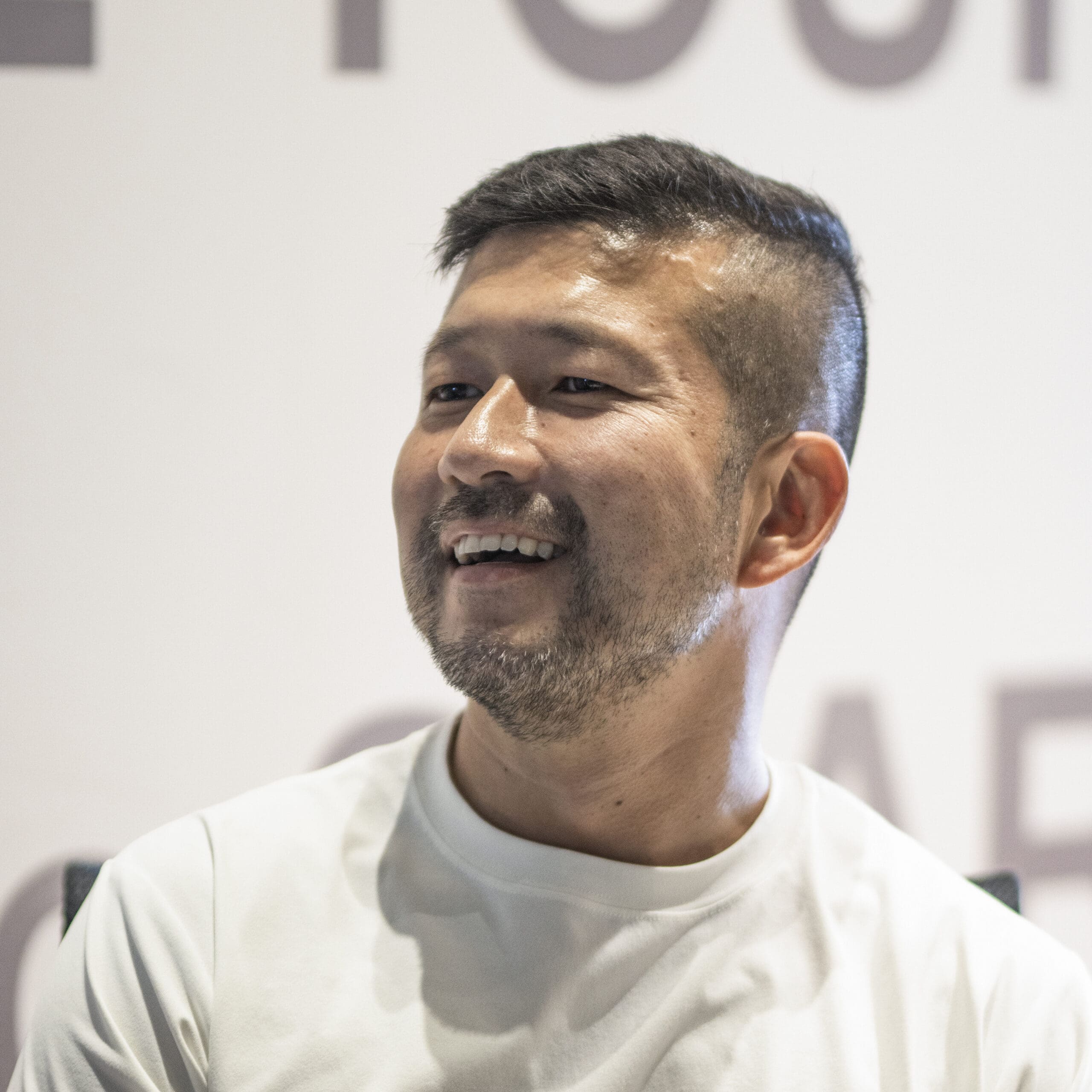

Yoshinori Sakuno
Founder and Group Managing Director of doq®. After gaining experience in the APAC and Western markets at the U.S. advertising agency Leo Burnett, he founded doq® in 2009. He holds an MBA from University of NSW’s AGSM and a Master’s degree in Digital Media Management from Hyper Island Singapore. He was a finalist for the “Ethnic Business Awards” that honour immigrant entrepreneurs and received the 2021 NSW State Export Award for the Creative Industries sector’s Best Company.
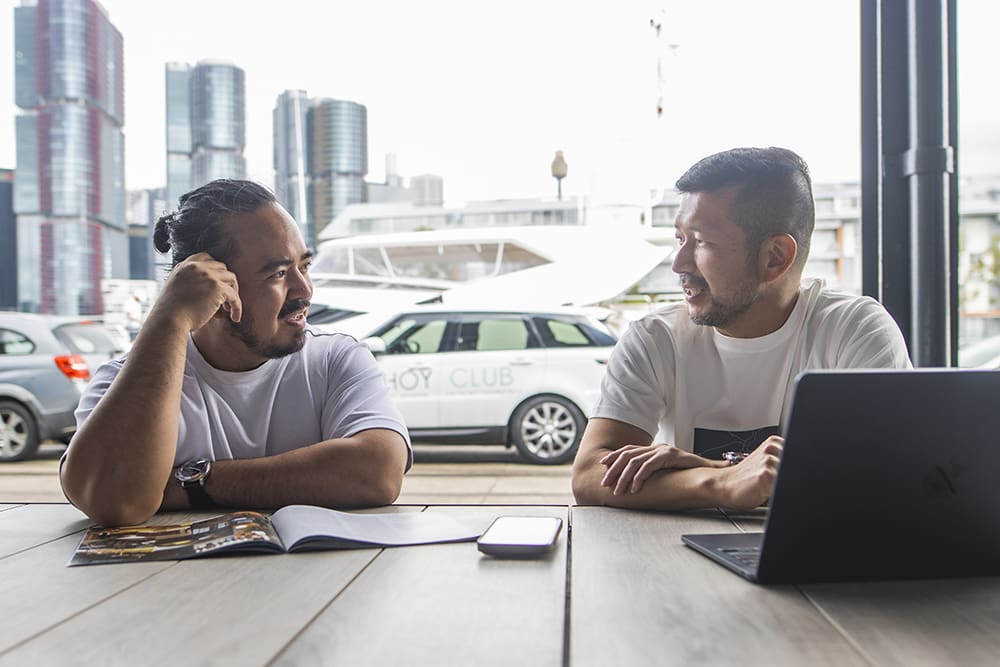

Sakuno: You’ve experienced living in Japan before, so what led you to consider that move from Australia to Japan?
Liaw: To be honest, it was just by chance. At that time, I was working as a lawyer in Adelaide, which was a small city, and I felt the desire to see more of the world. I was only 22 years old, but I think it’s around that age when people start wanting to explore the world. It was during such a time that a friend working at Walt Disney’s London office informed me that there was a job opening at the Tokyo office. The recruiters told me, ‘This is the best job that any lawyer in the world would want. It will be challenging to get.’ Despite that, after nearly a year-long process, I eventually received an offer which was fantastic.
Sakuno: Before that, did you have any connections with Japan, such as taking Japanese language classes?
Liaw: No, I hadn’t even been to Japan before, and I couldn’t even say ‘thank you’ or ‘hello’ in Japanese. So, getting that job was a significant change for me. I ended up staying in Tokyo for about 8 years. It was a lot of fun and a fantastic experience for my career. However, when I returned to Australia, I decided to reconsider what I really wanted to do. At that point, I had been working as a lawyer for about 12 years, and normally, people secure a new job before returning home. But I chose to take a little break.
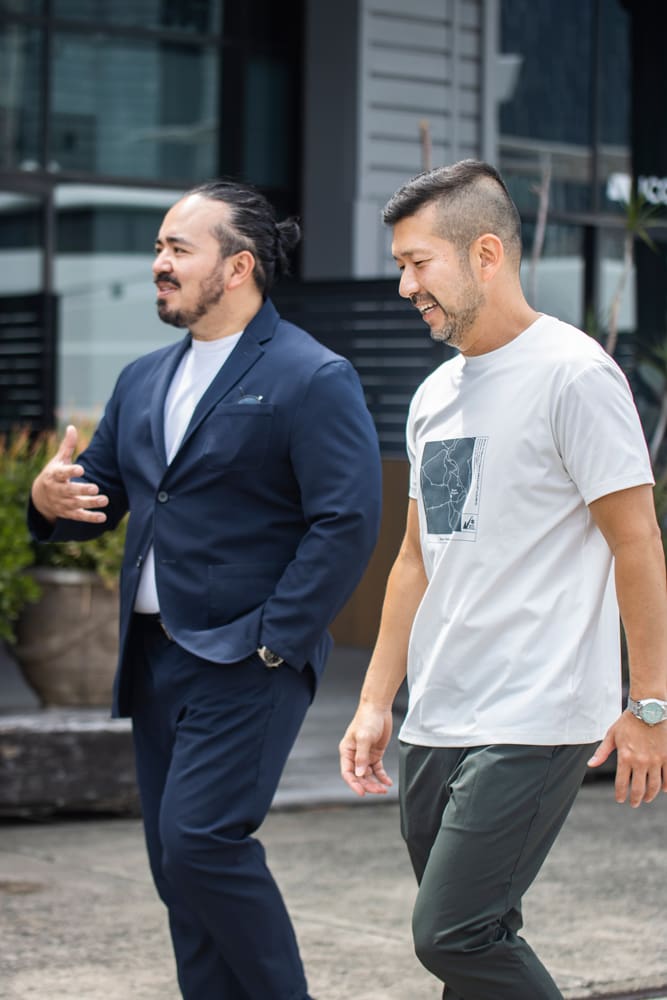

Sakuno: Was that when you were around 30 years old?
Liaw: Yes, that’s correct. At that time, I appeared on ‘MasterChef,’ although I wasn’t very familiar with the show itself. However, due to my pre-existing love for cooking and my experience working with Disney, I had some knowledge of the TV production process. After ‘MasterChef,’ SBS expressed interest in doing a series about Japan and offered me a project. This led to the creation of the program ‘Destination Flavour Japan,’ which became my first solo travel series. Following that, we produced the series in other countries such as Australia, New Zealand, Singapore, Scandinavia, and China. Creating the ‘Destination Flavour’ series involved traveling around the world for an extended period, and it turned out to be a fantastic experience.
The factor that turned a hobby into a lifetime career: timing


Sakuno: That’s interesting how you connect the dots by living in Japan, picking up the Japanese language and culture, and then discovering a passion for cooking while working as a lawyer.
Liaw: I think it was because I had to. Most people don’t consider learning to cook, as they can easily prepare meals based on what they’ve grown up eating. However, the situation was different when I went to Japan. The ingredients at the supermarkets were different, and I couldn’t make the same dishes I used to make in Australia. I had to learn different ways of cooking. As a result of needing to learn something new, it became a skill I acquired.
Sakuno: Many people leave their hobbies as hobbies and don’t turn them into professional careers. What was the factor that led you to turn it into a lifetime career?
Liaw: When considering turning a hobby into a profession, the most significant concern is often financial stability. While becoming a lawyer may be more lucrative than earning a living through a passion like sewing, the decision is often uninspiring. I made a career change at the age of 30, a period in life when responsibilities typically increase, and making decisions that involve significant risks becomes challenging. However, recently, I believe the risks associated with venturing into new challenges, such as acquiring qualifications or micro-credentials, have become much smaller. Especially in Australia, changing careers has become quite common. However, in my case, when I created ‘Destination Flavour,’ my wife Asami was pregnant with our son, Christopher. If the timing had been just one year different, I might not have been able to make the career switch. There are various responsibilities, including the expenses for raising children, that one must shoulder. In that sense, I believe the ‘Destination Flavour Japan’ series came at an ideal time for me.
Sakuno: I see. So, regardless of whether it could generate income, you were able to purely focus on what you wanted to do.
Liaw: Yes, it was just the right timing. In the initial TV series, I couldn’t make a lot of money, but the key is that you have to plan for such changes. Things don’t always go smoothly. The reason I was able to seize the opportunity was that I had essentially planned not to work as a lawyer for a year.
Sakuno: I still remember when you appeared on Season 2 of ‘MasterChef’ in 2010. On TV, it was introduced that you had halted your career as a lawyer to participate in the contest. At that time, my company was in its second year, struggling without profits, just as you mentioned. Amidst these challenges, I was facing several job opportunities and grappling with whether to take them, and whether to give up on this company. During such a moment, I saw you, Adam, on TV. Witnessing your determination to pursue your passion inspired me, so I want to express my gratitude.
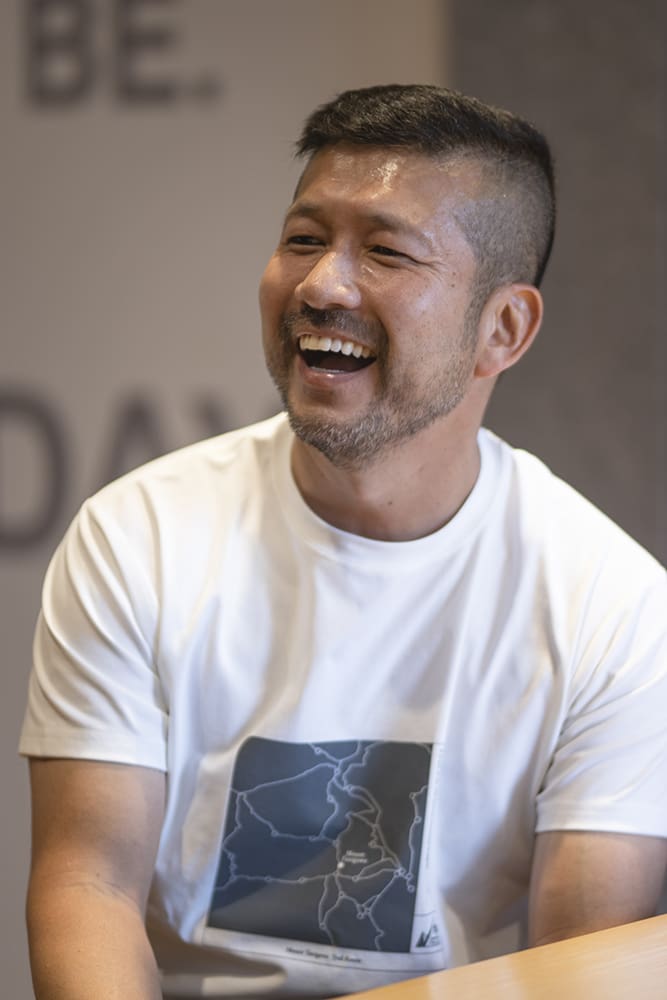

Liaw: Not at all, you’re welcome.
Sakuno: I believe that program inspired many people, and thanks to that, I decided to continue with doq®.
Liaw: I truly think that’s wonderful. Without putting in effort and without setting up a structure to seize opportunities, it would just remain a mere passion.
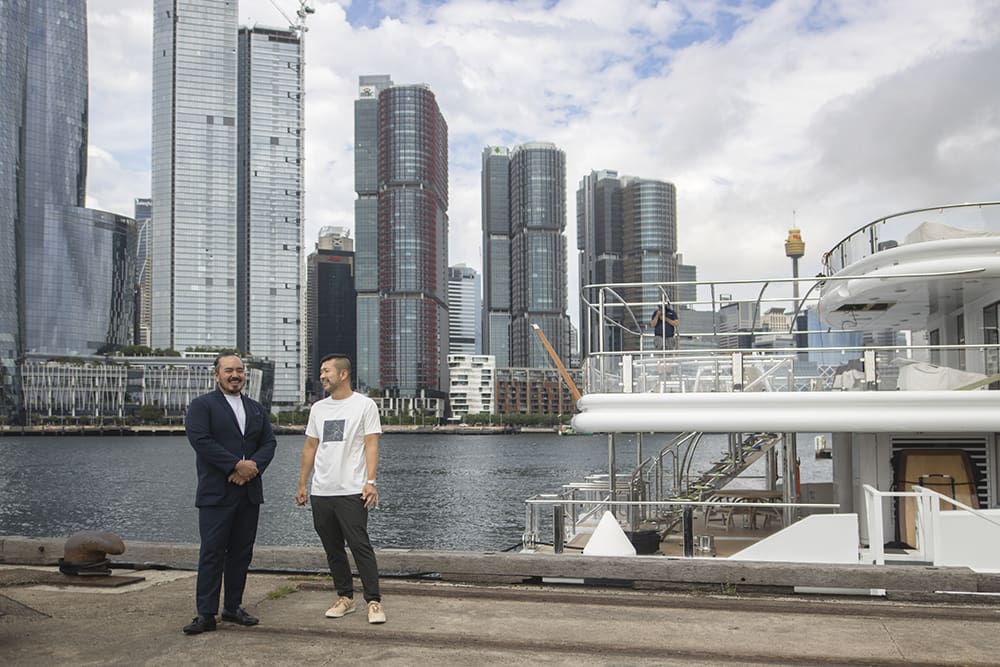

Resuming the construction of travel programs after challenging times
Sakuno: We see you on TV almost every day, but among all the TV appearances you’ve had so far, what has been the most challenging experience for you?
Liaw: I think it’s COVID-19 after all. I spent 10 years of my life making travel shows, and my job was to travel all over the world to cook and eat. We had three shows planned for 2020 and were supposed to be filming overseas for nine months, but all of that was cancelled in less than two weeks. When you’re self-employed, you have to plan your job prospects one to two years in advance, but since I wasn’t able to do that, I remember feeling extremely stressed at the time.
Sakuno: It was something no one could have predicted, right?
Liaw: Exactly. That’s why I had to make significant changes in what I do. I started a new production company, shifted the program style from travel shows to studio programs, and now I’ve produced 600 episodes of a program called ‘The Cook Up.’ Just as you are rebuilding the travel aspects of your business at doq®, I am also in the process of resuming the construction of travel programs.
Sakuno: doq® faced the same situation of turning challenging times into opportunities. We had a significant number of clients in the tourism industry, but suddenly, it dwindled to almost zero. At that time, we had about 18 employees, and we needed to continue paying salaries. So, we quickly shifted to non-tourism industry clients. As a result, not only have tourism industry clients returned, but we’ve also gained clients from non-tourism industries.


The importance of learning about multiculturalism
Sakuno: What is your perspective on the differences in business culture between Japan and Australia, or other countries you have worked with?
Liaw: I consider Australia to have a culture that is highly tolerant of innovation and diverse ideas. On the other hand, in Japan, I think there is a strong tendency to emphasize conservative business models, preservation, and consensus. The rigid hierarchical structure of many Japanese companies may be making innovation a little difficult.
Sakuno: In the current era where innovation is happening everywhere, it seems that Japanese people are struggling to adapt to and address that innovation.
Liaw: Yes, that’s right. There’s also an economic aspect to it. When economic difficulties spread, it becomes challenging to advocate for the reasons behind innovation. This has been a long-standing issue in Japan, and it could be considered a major difference.
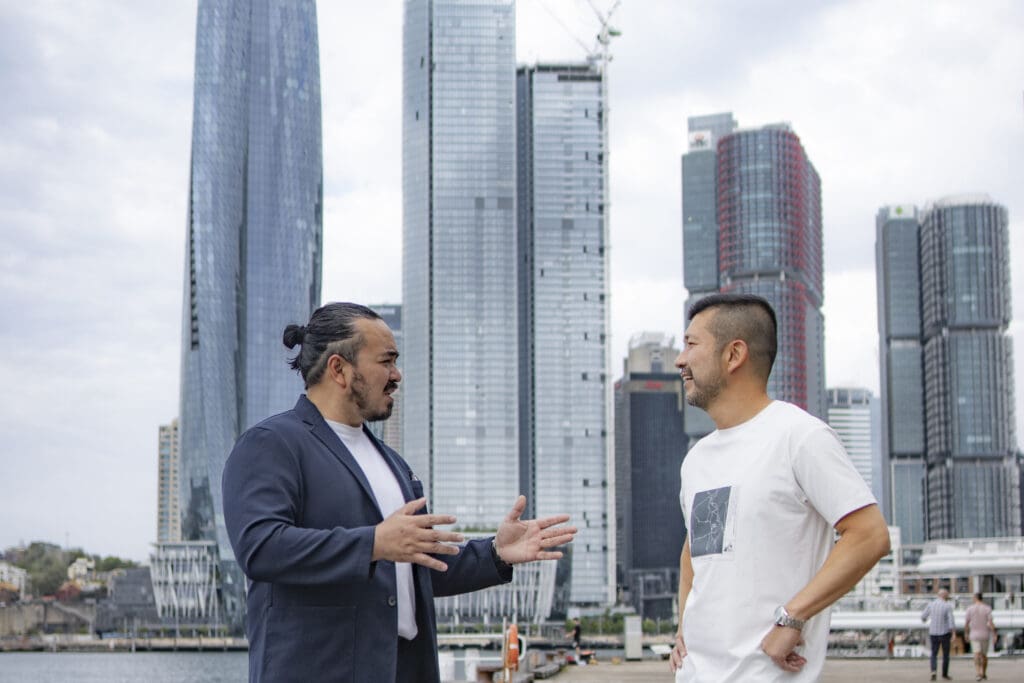

Sakuno: I believe you are aware that Japan is facing the problem of a declining and ageing population, and in particular the loss of economic labour in the next 20-30 years. Considering the Japanese economy, employing foreign workers in Japan could be one solution. If Japan were to move in that direction, what challenges do you foresee, and how do you think they could be addressed?
Liaw: There is an issue with population density. Areas with jobs have very high population density, while regions with low population density, such as rural areas, have significantly fewer jobs. This is also a similar challenge for Australia. There are cultural issues as well. Skilled immigrant workers would likely want to participate in the business environment on par with workers born in that country. However, can those workers truly advance to positions of power? If they can, what impressions will they leave on other people within the company? These are issues such as the potential for a certain level of xenophobia. Japan is not yet a multicultural country. Learning about multiculturalism is something that every country aiming to become multicultural must go through.
I think Australia is a very successful multicultural country, but there are still many problems with how we embrace multiculturalism. Japan needs to deal with similar issues. However, I believe that Japan can successfully overcome these problems. Historically, when Japan opened its doors to the world, it was far behind the rest of the world militarily, educationally, and technologically. At the time, the Russian Navy was the most powerful navy in the world, but after 10, 20, and 50 years of Japan’s opening, Japan grew to the point where it could even defeat the Russian Navy. Japan has the ability to modernize its technological and educational systems more quickly than virtually any other country in history, and has achieved enormous success as a result. Japan is said to be conservative and slow, but in fact, when speed is required, Japan can do things very quickly.
Sakuno: Every difficulty is an opportunity for the future, so I hope that Japan will also see this as an opportunity for major change.
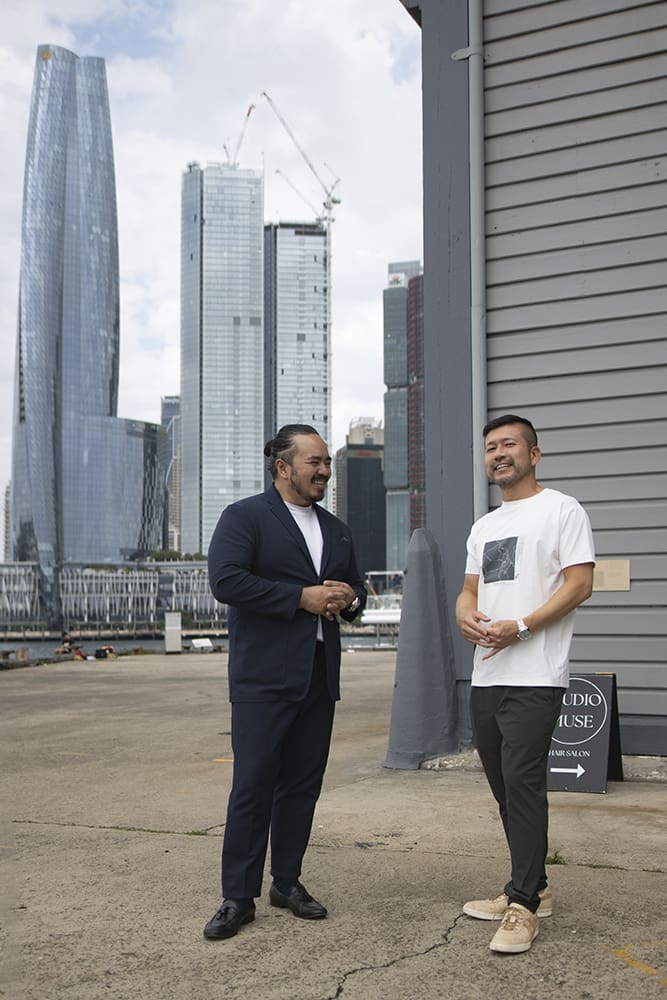

Being flexible is crucial to seizing opportunities
Sakuno: Do you have any visions for the future, Adam?
Liaw: Having challenged a new career and now almost 15 years later, I’ve come to realize that with confidence in my abilities and the availability of time, I can achieve nearly anything I desire. While there are still many evolving aspects in my career, I believe the key is to remain flexible to seize opportunities. The initial and only opportunity that led me to become a TV presenter was when I moved to Japan as a lawyer. If I hadn’t been living in Japan, I probably wouldn’t have become a presenter for TV programs related to Japan. I didn’t consider being a generalist as a positive trait. In Asian households, whether it’s music or sports, there’s an expectation to excel in whatever one is good at. However, I could only manage to be slightly above average in most things. But when I reflect on my career, it all makes sense because I enjoy various different things. Therefore, I wouldn’t decide to become a presenter or a chef for a lifetime. By not limiting myself to thinking I am a lawyer, TV presenter, or chef, I believe I can effectively seize new opportunities.


Sakuno: What does your ideal life and dream look like for you?
Liaw: I don’t want to define it too much. I want to be someone who can enjoy things without defining who I am. One of my biggest fears is reaching retirement age and not being able to retire. If I were to express a dream, it would be reaching a point where none of the many things I do define me.
Sakuno: Finally, could you please offer some advice to the readers of Nichigo Press on career development between Japan and Australia?
Liaw: Please don’t hesitate to engage in things unrelated to your career. When people talk about career development, there tends to be a focus on enhancing existing careers. However, all the changes and growth in my career have originated from places that seem unrelated to work. If you can do as many things as possible without being bound or dependent on a core career, I believe it can lead to positive outcomes for your overall career.
Sakuno: Thank you very much.
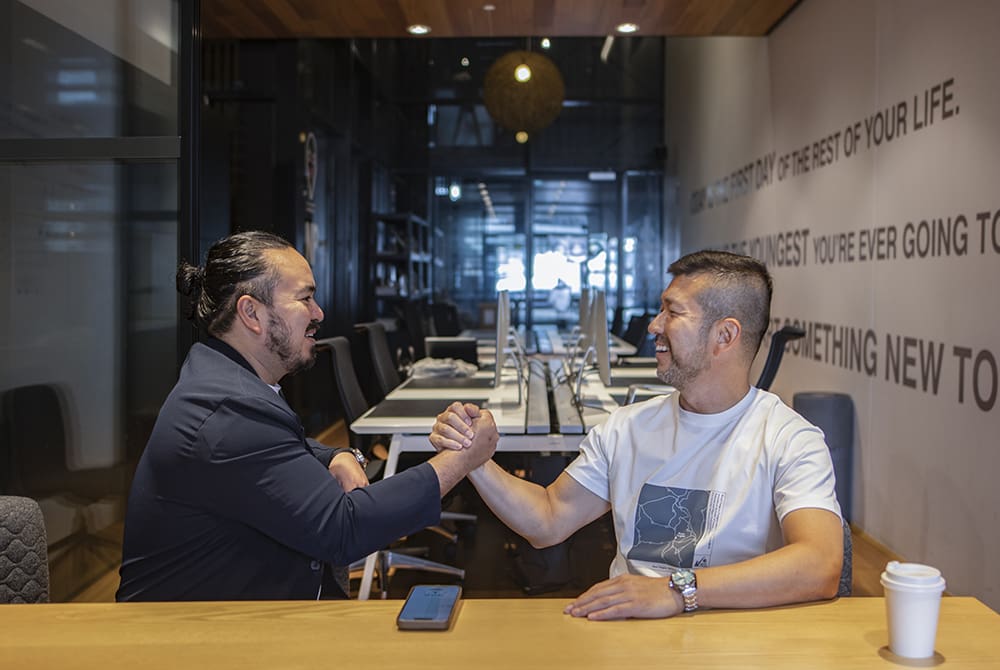

(15th November, in Sydney)
